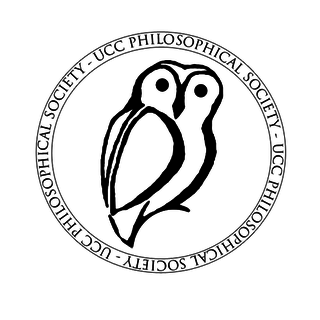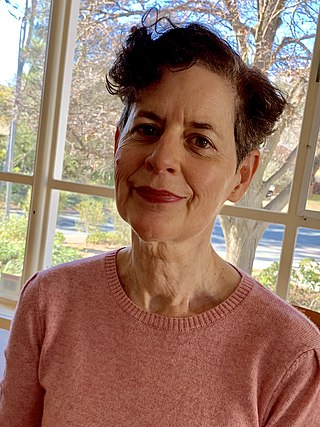Related Research Articles

Altruism is the principle and practice of concern for the well-being and/or happiness of other humans or animals above oneself. While objects of altruistic concern vary, it is an important moral value in many cultures and religions. It may be considered a synonym of selflessness, the opposite of selfishness.

Gary Stanley Becker was an American economist who received the 1992 Nobel Memorial Prize in Economic Sciences. He was a professor of economics and sociology at the University of Chicago, and was a leader of the third generation of the Chicago school of economics.
A gift economy or gift culture is a system of exchange where valuables are not sold, but rather given without an explicit agreement for immediate or future rewards. Social norms and customs govern giving a gift in a gift culture; although there is some expectation of reciprocity, gifts are not given in an explicit exchange of goods or services for money, or some other commodity or service. This contrasts with a barter economy or a market economy, where goods and services are primarily explicitly exchanged for value received.

In sociology, social complexity is a conceptual framework used in the analysis of society. In the sciences, contemporary definitions of complexity are found in systems theory, wherein the phenomenon being studied has many parts and many possible arrangements of the parts; simultaneously, what is complex and what is simple are relative and change in time.
In cultural anthropology, reciprocity refers to the non-market exchange of goods or labour ranging from direct barter to forms of gift exchange where a return is eventually expected as in the exchange of birthday gifts. It is thus distinct from the true gift, where no return is expected.

Sociobiology: The New Synthesis is a book by the biologist E. O. Wilson. It helped start the sociobiology debate, one of the great scientific controversies in biology of the 20th century and part of the wider debate about evolutionary psychology and the modern synthesis of evolutionary biology. Wilson popularized the term "sociobiology" as an attempt to explain the evolutionary mechanics behind social behaviour such as altruism, aggression, and the nurturing of the young. It formed a position within the long-running nature versus nurture debate. The fundamental principle guiding sociobiology is that an organism's evolutionary success is measured by the extent to which its genes are represented in the next generation.
Crooked Timber is a blog with a left-of-center political slant, primarily administered by academics from countries like the United States, the United Kingdom, and the Republic of Ireland. The blog's name is inspired by a quotation from philosopher Immanuel Kant, "Out of the crooked timber of humanity, no straight thing was ever made," from his 1784 essay "Idea for a Universal History with a Cosmopolitan Purpose". The liberal philosopher Isaiah Berlin alluded to the quotation in The Crooked Timber of Humanity: Chapters in the History of Ideas. Crooked Timber frequently hosts online book events and includes contributions from a variety of experts in fields such as philosophy, political science, and sociology.

The UCC Philosophical Society, also known as the 'Philosoph', is the largest debating society at University College Cork, Ireland. The Philosoph was founded in 1850, making it the oldest society at UCC. The society carries out a number of functions, including weekly debates with guest speakers, participating in debating competitions, running workshops for the students of UCC to develop their public speaking skills and running debating competitions and workshops for schoolchildren. In the 1960s, the Nobel Peace Prize winner Seán MacBride described the Philosoph as "the centre of independent thought in Ireland". House meetings of the society are held every Monday evening during UCC's term time.

T. L. Taylor is an American sociologist and professor. Taylor specialises in researching the culture of gaming and online communities, in particular, esports, live-streaming, and MMOGs such as EverQuest and World of Warcraft.
Christian Stephen Smith is an American sociologist, currently the William R. Kenan Jr. Professor of Sociology at the University of Notre Dame. Smith's research focuses primarily on religion in modernity, adolescents and emerging adults, sociological theory, philosophy of science, the science of generosity, American evangelicalism, and culture. Smith is well known for his contributions to the sociology of religion, particularly his research into adolescent spirituality, as well as for his contributions to sociological theory and his advocacy of critical realism.

The sociology of the Internet involves the application of sociological or social psychological theory and method to the Internet as a source of information and communication. The overlapping field of digital sociology focuses on understanding the use of digital media as part of everyday life, and how these various technologies contribute to patterns of human behavior, social relationships, and concepts of the self. Sociologists are concerned with the social implications of the technology; new social networks, virtual communities and ways of interaction that have arisen, as well as issues related to cyber crime.

Herbert Gintis was an American economist, behavioral scientist, and educator known for his theoretical contributions to sociobiology, especially altruism, cooperation, epistemic game theory, gene-culture coevolution, efficiency wages, strong reciprocity, and human capital theory. Throughout his career, he worked extensively with economist Samuel Bowles. Their landmark book, Schooling in Capitalist America, had multiple editions in five languages since it was first published in 1976. Their book, A Cooperative Species: Human Reciprocity and its Evolution was published by Princeton University Press in 2011.

Michèle Lamont is a Canadian sociologist who is the Robert I. Goldman Professor of European Studies and a professor of Sociology and African American Studies at Harvard University. She is a contributor to the study of culture, inequality, racism and anti-racism, the sociology of morality, evaluation and higher education, and the study of cultural and social change. She is the recipient of the Gutenberg Award and the Erasmus award, for her "devoted contribution to social science research into the relationship between knowledge, power, and diversity." She has received honorary degrees from five countries. and been elected to the British Academy, Royal Society of Canada, Chevalier de l’Ordre des Palmes Academiques, and the Sociological Research Association. She served as president of the American Sociological Association from 2016 to 2017. In 2024, she was elected to the American Philosophical Society.
Several authors have used the terms organ gifting and "tissue gifting" to describe processes behind organ and tissue transfers that are not captured by more traditional terms such as donation and transplantation. The concept of "gift of life" in the U.S. refers to the fact that "transplantable organs must be given willingly, unselfishly, and anonymously, and any money that is exchanged is to be perceived as solely for operational costs, but never for the organs themselves". "Organ gifting" is proposed to contrast with organ commodification. The maintenance of a spirit of altruism in this context has been interpreted by some as a mechanism through which the economic relations behind organ/tissue production, distribution, and consumption can be disguised. Organ/tissue gifting differs from commodification in the sense that anonymity and social trust are emphasized to reduce the offer and request of monetary compensation. It is reasoned that the implementation of the gift-giving analogy to organ transactions shows greater respect for the diseased body, honors the donor, and transforms the transaction into a morally acceptable and desirable act that is borne out of voluntarism and altruism.

Knowledge and Human Interests is a 1968 book by the German philosopher Jürgen Habermas, in which the author discusses the development of the modern natural and human sciences. He criticizes Sigmund Freud, arguing that psychoanalysis is a branch of the humanities rather than a science, and provides a critique of the philosopher Friedrich Nietzsche.
Social preferences describe the human tendency to not only care about one's own material payoff, but also the reference group's payoff or/and the intention that leads to the payoff. Social preferences are studied extensively in behavioral and experimental economics and social psychology. Types of social preferences include altruism, fairness, reciprocity, and inequity aversion. The field of economics originally assumed that humans were rational economic actors, and as it became apparent that this was not the case, the field began to change. The research of social preferences in economics started with lab experiments in 1980, where experimental economists found subjects' behavior deviated systematically from self-interest behavior in economic games such as ultimatum game and dictator game. These experimental findings then inspired various new economic models to characterize agent's altruism, fairness and reciprocity concern between 1990 and 2010. More recently, there are growing amounts of field experiments that study the shaping of social preference and its applications throughout society.
Elizabeth M. "Becky" Pettit is an American sociologist with expertise in demography. She has been a professor of sociology at the University of Texas-Austin, as well as an affiliate at its Population Research Center, since 2014. She is an advocate for decarceration in the United States.
Reciprocal altruism in humans refers to an individual behavior that gives benefit conditionally upon receiving a returned benefit, which draws on the economic concept – ″gains in trade″. Human reciprocal altruism would include the following behaviors : helping patients, the wounded, and the others when they are in crisis; sharing food, implement, knowledge.

Fire & Blood is a fantasy book by American writer George R. R. Martin and illustrated by Doug Wheatley. It tells the history of House Targaryen, the dynasty that ruled the Seven Kingdoms of Westeros in the backstory of his series A Song of Ice and Fire. Although originally planned for publication after the completion of the series, Martin revealed his intent to publish the history in two volumes as the material had grown too large. The first volume was released on November 20, 2018.

Catherine Waldby is an Australian academic, researcher and author. She is the Director of the Research School of Social Sciences at the Australian National University and a visiting professor at King's College London.
References
- ↑ Duke sociology people Archived 2013-01-24 at the Wayback Machine , retrieved 2013-01-20.
- ↑ KIE Faculty & Senior Fellows, retrieved 2013-01-20.
- ↑ Philosophers at RSSS in 2011, retrieved 2013-01-20.
- ↑ Kieran Healy Award Statement, American Sociological Association, retrieved 2013-01-21.
- ↑ "Roll of former champions". Irish Times . Archived from the original on 21 October 2012.
- ↑ The Decline and Fall of the Typing Wife, Dwight Garner, New York Times , August 9, 2007.
- ↑ How a literary list sparked an online craze, Irish Times , April 3, 2010 (subscription required).
- ↑ Grim Harvest (review of Last Best Gifts, Virginia Postrel, New York Times , January 28, 2007.
- ↑ Review of Last Best Gifts, International Herald Tribune , January 27, 2007 (subscription required).
- ↑ Review of Last Best Gifts by Jane Allyn Piliavin, Social Forces, March 1, 2008 (subscription required).